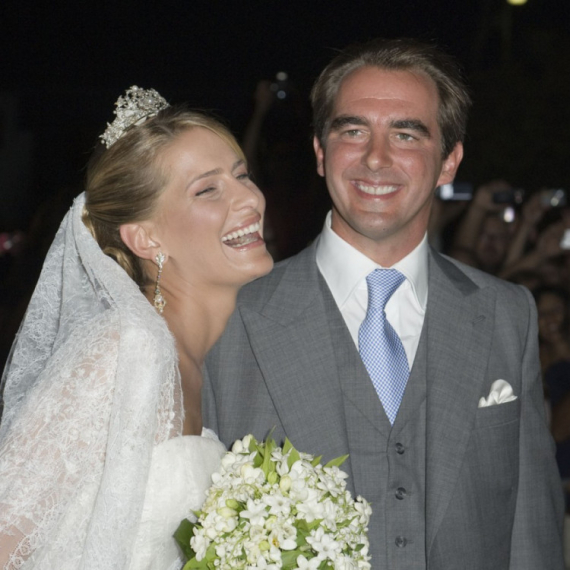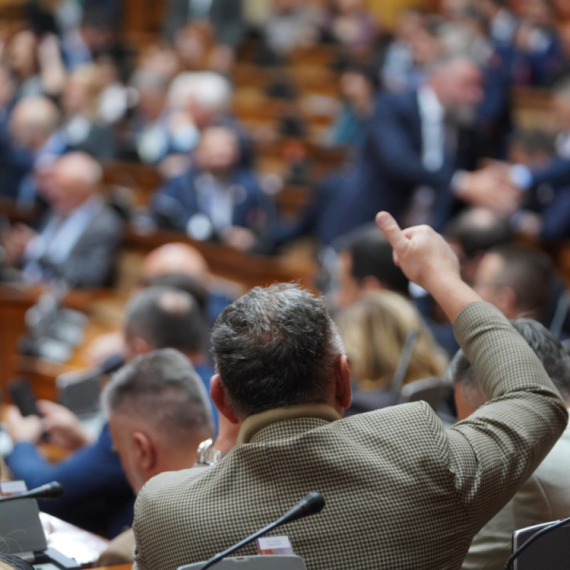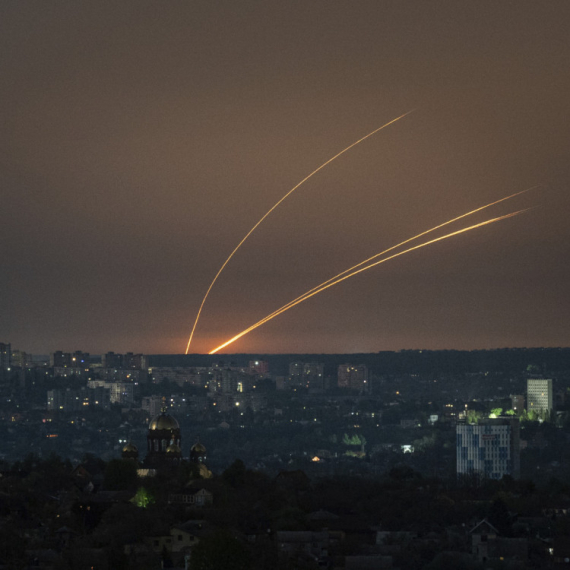Mladić’s trial begins in Hague Tribunal
The trial of former Republic of Srpska (RS) Army Commander Ratko Mladić started at 9:00 on Wednesday in the Hague Tribunal.
Wednesday, 16.05.2012.
09:32

The trial of former Republic of Srpska (RS) Army Commander Ratko Mladic started at 9:00 on Wednesday in the Hague Tribunal. Mothers of victims who were killed in Srebrenica gathered in front of the Hague Tribunal this morning. Mladic’s trial begins in Hague Tribunal Presiding judge Alphons Orie stressed at the beginning of the trial that the defendant’s defense had decided not to give an opening statement at this point and that they would do so when the prosecution starts presenting evidence. Orie said that the court was considering postponing the presentation of evidence, which is scheduled for May 29, due to the prosecution’s failure to send them to the defense on time. The prosecution started its opening statement soon after. The crimes committed by the Bosnian Serb forces during the war in Bosnia-Herzegovina were a part of a plan to separate non-Serbian population from Serbs, to ethnically cleanse the territory the Serbs considered their own and to connect the Serb territories inside Bosnia and secure a connection with Serbia, Prosecutor Dermot Groome said at the beginning of the trial. “Ratko Mladic's fingers are visible in all crimes against non-Serbs in Bosnia, from Markale to Srebrenica,“ he said in an opening argument. The prosecutor backed up his claims with documents and statements made by former RS President Radovan Karadzic, former RS parliament Speaker Momcilo Krajisnik and Mladic himself and war plans which were made 20 years ago. He claimed that the defendant had known what was going to happen in the very beginning of the armed conflict, quoting Mladic’s statement that it would be difficult to separate people based on their ethnicity in Bosnia because “people are not keys in a pocket so you can move them around. It is easy to say but hard to achieve”. The prosecution also quoted entries from Mladic’s journal which had been found during the search of his house in Belgrade. Groome pointed out that “Bosnian Serb leaders started attacking their fellow citizens in Bosnia only because they belonged to other religion or nation”. “The Bosnian Serb forces became well-practiced by the end of the war and they became experts in killing people,” the prosecutor said. Groome added that camps where Muslims and Croats were detained, tortured and killed were opened to help the ethnic cleansing, pointing out that some had been founded by the RS Army and that therefore there was no doubt that Mladic had been aware of their existence. The prosecution will, for the last time in the Hague Tribunal, try to prove the allegation that has so far been rejected in all trials of Bosnian Serb leaders – that the crimes that happened across Bosnia-Herzegovina and not just in Srebrenica, could be qualified as genocide. Mladic is also charged with genocide against Croats. Mladic is charged with 11 counts of genocide in Srebrenica and another seven municipalities in Bosnia-Herzegovina, crimes against humanity and violation of the law and customs of war. A total of 413 witnesses will testify in the trial. The Prosecution will start presenting evidence and call the first witnesses on May 29. Ratko Mladic B92
Mladić’s trial begins in Hague Tribunal
Presiding judge Alphons Orie stressed at the beginning of the trial that the defendant’s defense had decided not to give an opening statement at this point and that they would do so when the prosecution starts presenting evidence.Orie said that the court was considering postponing the presentation of evidence, which is scheduled for May 29, due to the prosecution’s failure to send them to the defense on time.
The prosecution started its opening statement soon after.
The crimes committed by the Bosnian Serb forces during the war in Bosnia-Herzegovina were a part of a plan to separate non-Serbian population from Serbs, to ethnically cleanse the territory the Serbs considered their own and to connect the Serb territories inside Bosnia and secure a connection with Serbia, Prosecutor Dermot Groome said at the beginning of the trial.
“Ratko Mladić's fingers are visible in all crimes against non-Serbs in Bosnia, from Markale to Srebrenica,“ he said in an opening argument.
The prosecutor backed up his claims with documents and statements made by former RS President Radovan Karadžić, former RS parliament Speaker Momčilo Krajišnik and Mladić himself and war plans which were made 20 years ago.
He claimed that the defendant had known what was going to happen in the very beginning of the armed conflict, quoting Mladić’s statement that it would be difficult to separate people based on their ethnicity in Bosnia because “people are not keys in a pocket so you can move them around. It is easy to say but hard to achieve”.
The prosecution also quoted entries from Mladić’s journal which had been found during the search of his house in Belgrade.
Groome pointed out that “Bosnian Serb leaders started attacking their fellow citizens in Bosnia only because they belonged to other religion or nation”.
“The Bosnian Serb forces became well-practiced by the end of the war and they became experts in killing people,” the prosecutor said.
Groome added that camps where Muslims and Croats were detained, tortured and killed were opened to help the ethnic cleansing, pointing out that some had been founded by the RS Army and that therefore there was no doubt that Mladić had been aware of their existence.
The prosecution will, for the last time in the Hague Tribunal, try to prove the allegation that has so far been rejected in all trials of Bosnian Serb leaders – that the crimes that happened across Bosnia-Herzegovina and not just in Srebrenica, could be qualified as genocide.
Mladić is also charged with genocide against Croats.
Mladić is charged with 11 counts of genocide in Srebrenica and another seven municipalities in Bosnia-Herzegovina, crimes against humanity and violation of the law and customs of war.
A total of 413 witnesses will testify in the trial. The Prosecution will start presenting evidence and call the first witnesses on May 29.
















Komentari 50
Pogledaj komentare